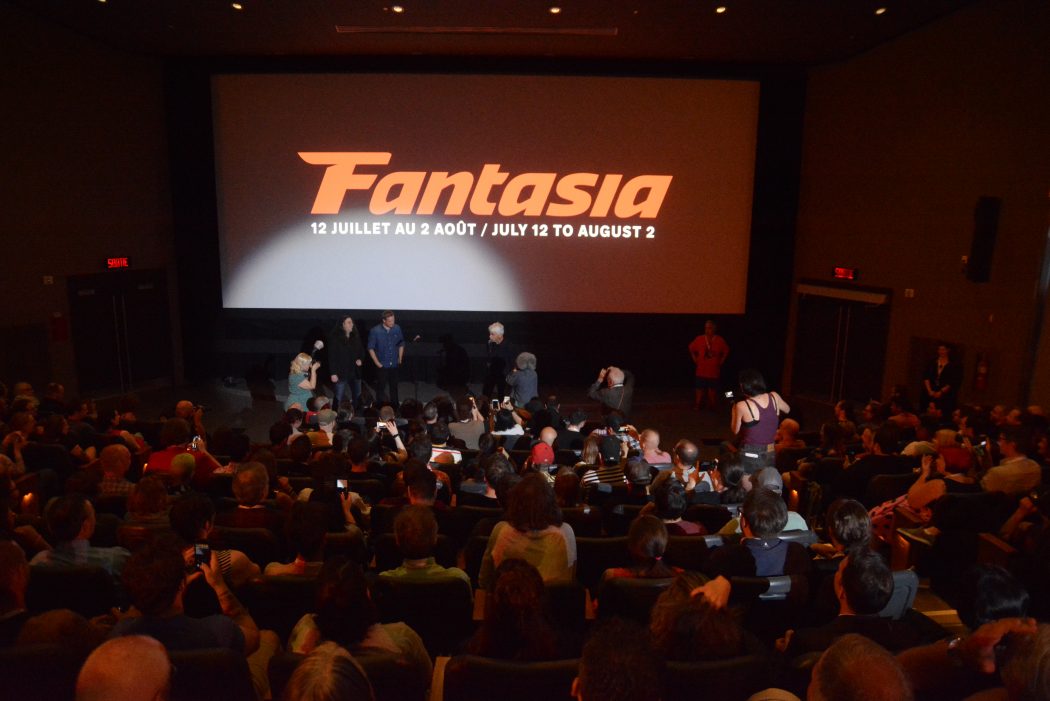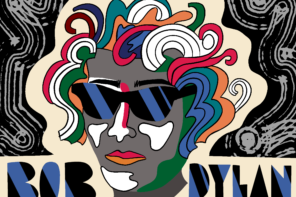The third and final installment of Jacob Klemmer’s trilogy, reporting everything you need to know about Montreal’s Fantasia Film Festival. Read the first installment here and the second here.
Best Picture
First things first, Madeline’s Madeline (Rating: 10/10) is the best film I saw at Fantasia Film Festival. It follows Madeline (Helena Howard, in her fabulous first performance), a teenage girl, as she struggles to relate to her mother, Regina (Miranda July), who’s frightened of her daughter’s anxiety though she aggravates it at every opportunity. When Madeline begins to take an experimental dance class, she forms an unhealthy relationship with her teacher, Molly, who lays claim to Madeline’s private trauma– but also to the piece itself, as it devours more and more of her individuality, making her act like a cat, a sea turtle, and eventually a violent version of Regina. It’s a story about the way Madeline’s mental illness is exacerbated by her gender, her age, and her biracial identity.
Virtuoso filmmaker Josephine Decker shoots the film mostly in feverish handheld close-ups, and uses a rhythmic, lyrical style of editing that fragments the narrative and arranges the film like an experimental dance piece. Many shots keep only a sliver of Madeline’s face in focus, surrounded on both sides by her curly, out of focus hair, protecting her from an even more out of focus background. Through this repeated cinematic motif, Decker conveys the difficulty of Madeline fitting into her environment. Only in dance or acting –when two bodies in the same space are in motion at the same time– does the film approach coherence, just as Madeline does. Beyond just being a terrific, impressionistic film that looks and moves beautifully, this is simply the best way that depression and anxiety have been captured on film, full stop. Almost no films manage this degree of unity in story, theme, and form.
Worst Picture
The sensitivity and wit of the art-within-art framework of Madeline’s Madeline illustrates the phoniness of Chained For Life (Rating: 4/10), a bit of indie Brooklyn Kodachrome nastiness from first-time filmmaker Aaron Schimberg. Taking its title from a 1950’s exploitation film and its plot from Fassbinder’s Beware of a Holy Whore, it’s a comedy about a German arthouse director making his English-language debut: a bad melodramatic horror film about a hospital for disfigured and disabled people who are treated as monstrous others. It’s the nastiest type of meta filmmaking, existing so that Schimberg can position his film as more honest and compassionate than the hoary straw-film that he made up. There are bustling long takes, hysterical jokes (many focused on the misadventures of late-period Orson Welles), and two sensitive central performances from Jess Weixler and Adam Pearson, but it’s all in service of a paper thin thesis about ugliness and beauty on celluloid (highlighted by a Pauline Kael quote at the start of the film; Schimberg wants you to know he’s read a lot of film theory.) In the final act, when we get to Schimberg’s shenanigans regarding which film-within-a-film we’re really watching, irritation had curdled into intolerability.
Best Director: Panos Cosmatos
For a better bit of retro self-consciousness, see the sensitive psychedelia of Mandy (Rating: 8/10), the closing film of the festival. It’s a simple tale of revenge, told in two halves: Red (Nicolas Cage) and Mandy (Andrea Riseborough) are a loving couple living happily in the Pacific Northwest, until one day Mandy is kidnapped by a deranged religious cult led by failed folk singer Jeremiah Sands (with the aid of a biker gang who accepts a mason jar of uber-potent acid and a human sacrifice as payment,) and Red must go on a journey of revenge armed with a crossbow, a home-forged battle axe, and a chainsaw. It sounds like the synopsis of a 90-minute midnight movie gorefest, and it will certainly scratch that itch, but director Panos Cosmatos has more to offer than just the lizard-brain pleasure of Nicolas Cage covered in blood in a chainsaw fight.
It’s a slow-paced film that spends half its runtime on what would normally be about fifteen minutes, taking time to immerse us in the tranquility of Mandy and Red’s relationship before illustrating the tragedy and mania that comes with it falling apart. The gorgeous cinematography, drenching many scenes in a single vibrant primary colour, the patient pace of the editing, and the moody maximalism of the synth score (the final score by Icelandic legend Johan Johansson) suggest a nerdy fascination with the heavy metal aesthetic of the 80s, but the film itself is hypercritical of the mindless appropriation of the past, telling a horror story about a 1980s haunted by the ghost of the 1960s. Mostly though, it’s a showcase for Nicolas Cage’s unique ability to be both reserved and calm, but also to be a force of nature whenever the film requires him to break out of his, um, cage. If there is any doubt in your mind that he’s one of the greatest living actors, see this film and learn the error of your ways.
Best Actor: John Cho
Likewise, for those that missed the boat on the majestic Columbus, watch Searching (Rating: 7/10) for evidence of John Cho’s brilliant, quiet emotion. This film, another desktop film, tells a story about the distant relationship between father David (Cho) and daughter Margot. When Margot disappears one day, David must investigate her disappearance by logging into her social media and discovering who his daughter truly is. Though the story is stressful and emotionally taxing, there’s a lot of fun to be had with Cho’s bewildered character learning how to use the internet, peppered with credible details like David’s misspelling of Tumblr, or his very long, angry paragraph-text to his daughter, which he deletes before sending a calmer version.
The desktop format strengthens the film’s first half but weakens its ending: When David investigates his daughter’s circle of friends and social media presence, it’s both a majestic piece of suspense and a deeply felt story of online identity and honesty. This film is the most hyperactive desktop film out of any I’ve seen, using fast-moving montage, zoom-ins and close-ups, and non-diegetic music to amp up the drama, which inadvertently dissociates us from David’s perspective and makes the desktop format feel superficial at best and constricting at worst: when the film’s gonzo final act commences, and twists keep piling up, I found myself wishing to get off the computer and get to the film.
Best Debut Feature: Nosipho Dumisa, Number 37
The supreme Hitchcock riff Number 37 (Rating: 8/10) uses the story of Rear Window (a wheelchair bound man witnesses a neighbor commit a crime through his binoculars and tries to solve it, saving his relationship in the process) and combines it with the red-green colour palette of Vertigo to tell a story of South African poverty, gang membership, and the movement of dirty money (really, it’s more Film Noir than Hitchcock.) Nosipho Dumisa deservedly won the Best Director award at Fantasia, and her crystal-clear framing and naturalistic direction of actors (as well as a sense of dramatic irony that’s not present in Hitchcock’s original) wring maximum tension and catharsis out of this thriller. It gives you everything you could want from a story like this and ends not a second sooner than it needs to, much like the pragmatic Noir it resembles.
Best Short Film Sadly Extended to Feature Length: The Witch in the Window
Sadly, the same can’t be said for The Witch In The Window (Rating: 4/10), which would’ve functioned as a fantastic short film had it been cut down to, say, fifteen minutes. Simon, a divorced father, brings his son Finn to help flip a farmhouse in rural Vermont, but discovers the ghostly presence of its former owner Lydia, and the more he fixes the house (thereby trying to fix his household), the stronger her pull becomes. The relationship between Simon and Finn is realistic (anchored by a terrific performance by Alex Draper as Simon,) and comes to a surprising and heartfelt conclusion, but there’s really no getting around the fact that this is a horror film that’s not even a little bit scary.
Best White Rap Musical: Bodied
Bodied (Rating: 5/10) is the story of Adam, a scrawny white dweeb who, while doing research for his thesis on ‘The Poetic Functions of the N-Word in Battle Rap’, stumbles into a rap battle on the street, where he finds he’s got a talent for freestyling elaborate racist insults and 35¢ rhymes. We follow his rise to the top of the game, as he Spits Hot Fire and takes no prisoners. The film likewise throws punches in all directions, teaching its naive white protagonist a lesson about the consequences of racial insults but also ruthlessly ridiculing campus ‘safe space’ culture; it finds a comfy home in the repellent centrism of South Park.
The film is an Eminem-produced Youtube Red original by director Joseph Kahn, who has extensively directed music videos for everyone from Taylor Swift to DMX, and cinematically it’s trapped between those two modes: it’s got all the choreography and imagery of a music video, but with the hyperactive editing, text effects, and cheap gags of a Youtube video (though at 2 bloated hours it could stand to learn from Youtube’s brevity). As far as hyper stylized films directed by music video auteurs it’s no Belly, and as far as youtube parodies of rap battles it’s no Supa Hot Fire vs B-Bone, but it’s funny and diverting while it’s in motion.
Final Thoughts
These three weeks at Fantasia Film Festival have been eye opening, not just to a bunch of wonderful films I never would’ve seen otherwise, but to a section of the Montreal film community that I never knew existed. Nowhere else does the arthouse collide with the midnight movie sensibility in such brilliant fashion; nowhere else can you view an artsy dance picture and then walk into the theatre next door and see Nicolas Cage with a chainsaw. Next year, if you can even make it to one of these screenings, it’s worth doing. Even if you’re not a fan of horror, you’ll be a fan of seeing any given movie with this fantastic crowd of screaming cats.









Your reviews are so clear, in depth and brilliantly worded. You held my interest from the first word! You make me want more!